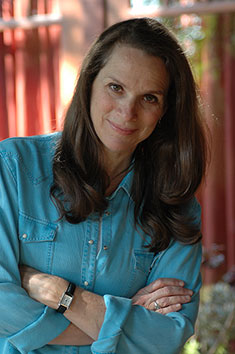Other families say their efforts to reinstate medication were rebuffed, and whatever the study called for, they allege that the doctors' response to relapse was inadequate. Enrique Lamadrid, concerned that his little brother was spiraling out of control, made a special trip to Santa Monica. "Even though I had made an appointment in advance and had traveled 1,000 miles to see (Gitlin), I was brusquely turned away after a three-minute explanation that no information, support or advice could be offered to me for reasons of confidentiality," Enrique Lamadrid wrote federal investigators. His brother was subsequently hospitalized at Camarillo State Hospital. "He was just allowed to crash without a support system in place," Enrique Lamadrid told me.
Gregory Aller, now 30 and attending UCLA part-time, recently told a congressional panel what happened during the months in 1990 that his parents said they were begging the research leaders to reinstate his medication but were told that their insistence on becoming involved was part of their son's problem:
"This time my symptoms were much more severe than the symptoms at the onset of my schizophrenia. What ensued was a nightmare. My ability to concentrate fell apart. I was unable to do schoolwork. I became manic and hyperactive. Some days I would hardly sleep at all. One night I woke up screaming, actually believing that I was sprouting another leg. I started to have paranoid delusions about government agents chasing me. I became violent with my father and threatened to kill him. I believed there were hidden cameras on the wall of my parents' living room. Much later, still in a delusional state, I started hitchhiking to Washington to assassinate President Bush. Though I had slipped back into paranoid symptoms, my doctor asked me if I felt I needed medication. Since I was paranoid by that time, I said I was fine, I didn't need medication. Dr. Gitlin never delved into what was really going on in my life."
Elizabeth de Balogh, 34, another UCLA subject-patient, now lives in an Artesia board and care home. She blames herself for her predicament. At UCLA, she says, she was stabilized for a year--able to drive and go to the beach and hold a job. But then, as she participated in the drug withdrawal protocol, her life began slipping away. She thought musical notes were chasing her and her "eyes rolled up," meaning she would hallucinate.
"But I wanted to get off the medications," she says. "So, it's not really their fault, I guess." Her long blond hair is washed, her purple dress and scarf offset by sneakers, no socks. Her vivid blue eyes grow sad, her little-girlish voice plaintive. "Why didn't they give me medications when I got sick?" Looking agitated, she says, "I'm starting to get bad thoughts. I'm scared the devil is trying to take my soul way from me."
Her brother, Frank de Balogh, wrote government officials that when his sister began to relapse over a weekend in 1985, her family frantically tried to contact the UCLA research team by phone but only got a recorded message about the clinic's business hours. Frustrated, they ended up taking her to Metropolitan State Hospital, where she stayed for a year before she was placed in long-term care.
For the Allers, the De Baloghs and the Lamadrids, such experiences add up to monstrous flaws in the Nuechterlein-Gitlin project. They feel betrayed--their relatives were enrolled at an institution renowned for the quality of its treatment, the study's head clinician had an excellent reputation (as one of Gitlin's colleagues commented, "If he can't do research right, who can?"), yet they watched their loved ones get worse and worse--by design, as they see it. They feel outraged that anyone could think that this study was acceptable.
Documentary filmmaker Bob Aller, Gregory's father, has become "obsessive compulsive" in his quest for justice. In many ways, the controversy over the UCLA study is as much about his persistence--his letter writing, his research, his trips to Washington, his family's lawsuit--as it is about his son's experiences. The Lamadrids call him their "spiritual leader."
"What you're looking at is a psychiatric community that says it's ethical to harm people because they're gathering data," he told me when we met at a restaurant near his apartment in West Los Angeles. "There's no morality there. They just do what they think is right. The patients are being told it's the illness. But the researchers are withholding information from patients and families. The relapsing of patients with schizophrenia should come to a grinding halt."
ASK ANYONE CLOSELY INVOLVED IN THE UCLA SCHIZOPHRENIA RESEARCH project and he will tell you that the study has absolutely nothing to do with purposefully relapsing schizophrenic patients.



